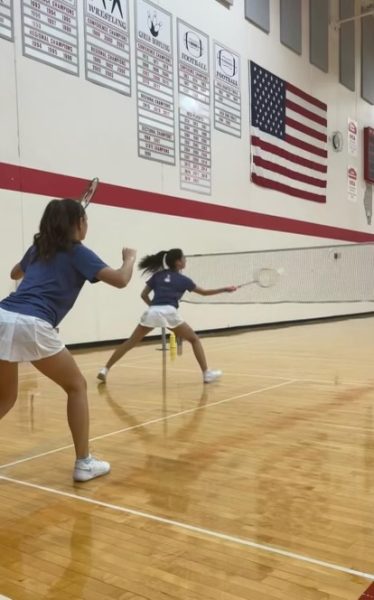Student-Athletes And Their Challenges With Mental Health
February 23, 2023
We’ve all been upset after a tough practice, game, performance, or tournament, but at what point has it been taken too far? 25% of elite athletes show symptoms of depression, anxiety, or disordered eating. Student-athletes at Lake Forest High School find themselves fitting in these statistics and are unsure how to climb out of their sport burn out.
There are ways athletes can temporarily check themselves in for the play, but after countless upsets are when they find themselves struggling the most. Junior and varsity volleyball player Emma Stadolnik says, “When you play a sport at such a high level every day, it can be easy for it to take over your life.
Eventually, how you are performing in your sport dictates your entire life, which is unhealthy and causes burnout.” Being able to control how you feel mentally will reflect how you play on the court, and that control is different for everybody. Varsity volleyball coach Ray Werner says, “Struggling athletes are typically stuck in a negative mind space which often does not include a positive approach for the next play.”
Athletes who put too much pressure on themselves notice the impact on their performance and the effect of it. Volleyball player Brent Stauffer says, “To have that much pressure on your shoulders all the time can end up weighing you down later.”
Having spent too much time physically in your sport can also lead to being mentally worn out. According to dancer Lily Pedian, “It’s just hard to keep going when your body is hurting, and you’re so tired that it ends up affecting your mental state.”

Having ways that bring the player back to reality at the moment is what dictates success in the player’s performance. “I usually try to fix my mindset by sitting back and watching and observing,” Stauffer says. “Take some time to rethink. Because trying to take the weight of the team on your shoulders doesn’t work.”
Werner advises his athletes when he notices they are upset with their play. “Once the athlete has been able to return to the moment, providing support to help rebuild confidence is my next preferred step. I like to help all athletes stay in the moment by helping them maintain their thoughts on the next play.”
Not only do student-athletes have the pressure to succeed at their sport, but other factors, including staying on top of school work, can increase stress levels.
Basketball player Campbell Allan says, “Playing a varsity sport takes up most of my free time, so I have to spend my school time productively. I have two study halls, so I get a lot of my work done during the day.” Finding the balance of maintaining good grades while playing at a high level is a challenging part for student-athletes.

Even though student-athletes do struggle with their mental health, sports have countless benefits and ways that do increase the players’ mental health. Sports can be seen as a way of socialization by bringing people together. Stadolnick says, “Reminding myself about the love I have for the sport and the friendships I’ve made from it makes it easier for me to consistently play at a high level.” Team sports enhance adversity, confidence, and teamwork skills. Stauffer says, “That’s why I love volleyball so much; not one person can carry the whole team.

















